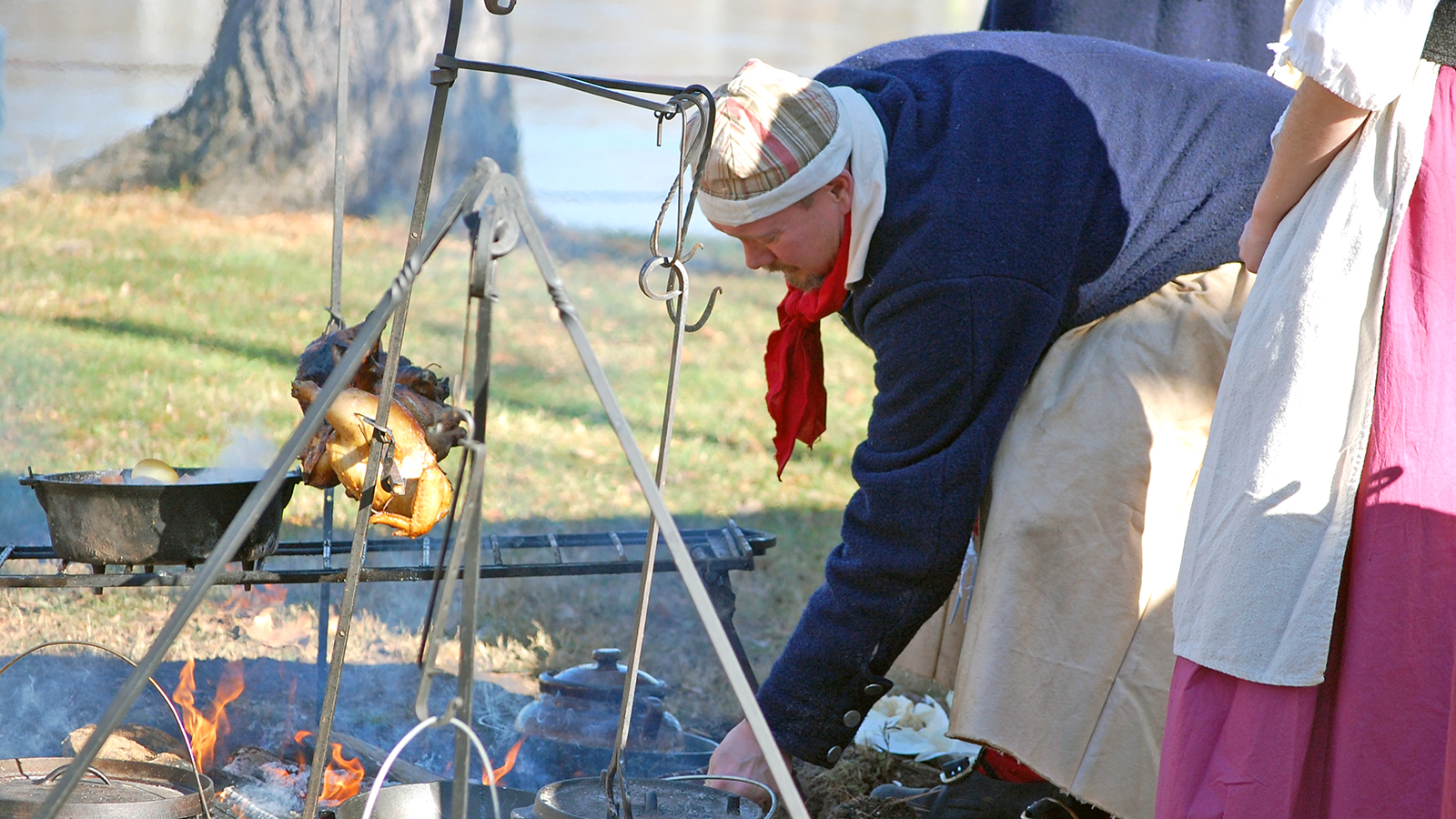 The challenges that George Washington and his 2,400 soldiers faced ahead of the crossing are too many to list here. In short, they’d experienced only defeat, and many were showing signs of the toll that had taken. They were exhausted, starving, and ill-equipped for the winter.
The challenges that George Washington and his 2,400 soldiers faced ahead of the crossing are too many to list here. In short, they’d experienced only defeat, and many were showing signs of the toll that had taken. They were exhausted, starving, and ill-equipped for the winter.
According to the book, Supplying Washington’s Army (a study, in part, of the Continental Army’s Commissariat which supplied food and equipment) every soldier was to be provided with the following daily ration:
- One pound of beef
- Three-quarters of a pound of chicken or pork
- One pound of bread or flour
- Three pints peas or beans
- One pint of milk
- One quart of spruce beer or cider
- Occasionally molasses (quantity unknown)
The ration was fairly standard. It was based on the British Army’s model, says Connie Unangst, the park’s museum shop coordinator and an expert in colonial era cooking.
“While there’s no record of what the soldiers ate before or after the crossing, it’s likely that they weren’t eating that, not all of that, at least,” Unangst says. “That was an ideal ration, and those were not ideal times. I think the commissary was generous when it could be. But more often, it was providing the bare minimum.”
Exactly how little the bare minimum was is hard to say, but Unangst has gleaned some notion from the diaries of soldiers from the period. She cites one in particular by Joseph Plumb Martin. In June 1776, Martin enlisted for six months as a private in Connecticut’s state troops at the age 15. He enlisted again in 1777, this time in the Continental Army, and served for the duration of the war. He did not participate in the crossing but did see action in a number of major battles, including the Battle of Monmouth on June 28, 1778.
At 70, Martin published what amounted to his memoir. It fell into obscurity until it was discovered in the 1960s and republished as Yankee Doodle Boy—A Young Soldier’s Adventures in the American Revolution. In it, “he describes eating some kind of disgusting meat that he ended up throwing up. He was just that hungry,” Unangst says.
Martin says he foraged for his food a lot. That included hunting small animals like squirrels, searching for edible plants, and knocking on the doors of the homes that surrounded his camps and asking if they had any food to spare, according to Unangst.
“‘Diverse and meager’ is a phrase that comes up again and again in his book in reference to his diet. It’s easy to imagine he would have eaten anything that came by him,” Unangst says. “And his experience seems pretty typical. The basic sentiment of a lot of the diaries is, ‘We marched. We were hungry. We marched. We were hungry.’”
The responsibility of making the most of the provisions fell to a single individual who did all of the cooking for each squad of five to eight soldiers. Because they needed to pack light, most favored camp kettles over the larger and heavier iron kettles. Their only other equipment, Unangst says, was an axe and maybe a fork or two.
“There were camp ovens, but not at the site of the crossing because they weren’t here long enough,” she says. “Their stay here was an especially fluid situation.”

